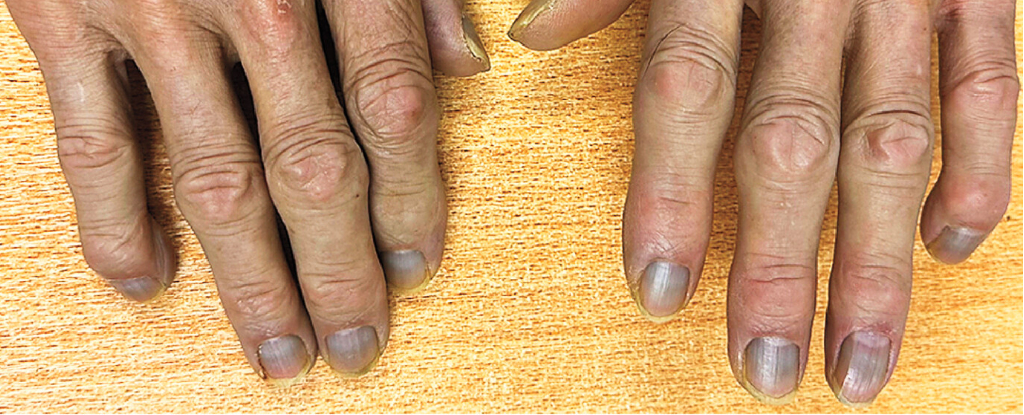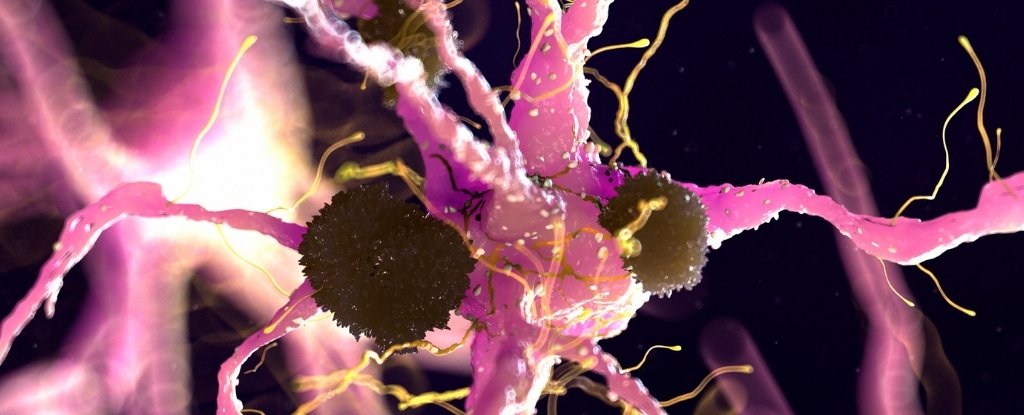ARTICLE AD
 Damage to neurons is how Parkinson's progresses. (koto_feja/E+/Getty Images)
Damage to neurons is how Parkinson's progresses. (koto_feja/E+/Getty Images)
A transfer of healthy bacteria from one person to another by way of a 'fecal transplant' could be used to improve Parkinson's disease symptoms.
In a recent clinical trial, fecal microbiota transplants (FMTs) from healthy donors into early stage Parkinson's patients led to mild but significant improvement in motoric symptoms that include tremors and problems with balance over the course of a year.
The research team from Belgium thinks that related treatments could be developed to slow the progress of Parkinson's and perhaps even to reverse it.
"Our results are really encouraging," says neurologist Arnout Bruggeman from Ghent University.
"After twelve months, participants who received the healthy donor stool transplant showed a significant improvement in their motor score, the most important measure for Parkinson's symptoms."
Look away now if you're a bit squeamish: the poop transplant was administered through the noses of the Parkinson's patients to reach their small intestine. Not the most pleasant-sounding experience, but for those with the condition it could be worth it to stop the disease in its tracks.
A total of 46 patients were treated in total; 22 with fecal transplants from healthy people and 24 with a placebo. Follow-ups were conducted up to a year after the transplant, with improvements only noticeable after the 6 month point. The researchers think that the symptom improvement might be related to changes in gut movement, though more research is needed to be sure.
It wasn't just motoric symptoms either: those who received the bacteria transplant also showed measurably slower development of constipation, which often comes along with the progression of Parkinson's disease.
"Our study provides promising hints that FMT can be a valuable new treatment for Parkinson's disease," says biotechnologist Roosmarijn Vandenbroucke from the VIB-UGent Center for Inflammation Research.
"More research is needed, but it offers a potentially safe, effective, and cost-effective way to improve symptoms and quality of life for millions of people with Parkinson's disease worldwide."
While there's plenty that we don't yet understand about Parkinson's, previous research has shown that it may be linked to significant changes in the gut's micrflora. It's thought that protein clumps that form in the gut could travel up the vagus nerve and increase the risk of neurodegeneration responsible for Parkinson's. If the mix of gut influences this process, finding the right mix could in the very least reduce the severity of damage.
With trillions of bacteria living inside all of our stomachs though, trying to figure out their unique impacts on Parkinson's is going to be difficult. What we can say is that scientists are getting closer to finding out what's happening.
"Our next step is now to obtain funding to try to determine which bacteria have a positive influence," says biochemist Debby Laukens, from Ghent University.
"This could lead to the development of a bacterial pill or other targeted therapy that could replace FMT in the future."
The research has been published in eClinicalMedicine.

 9 months ago
57
9 months ago
57 

